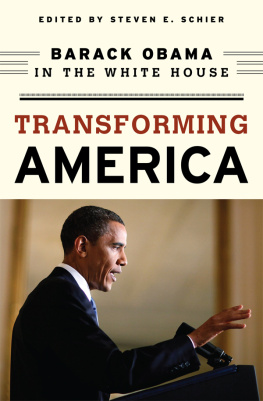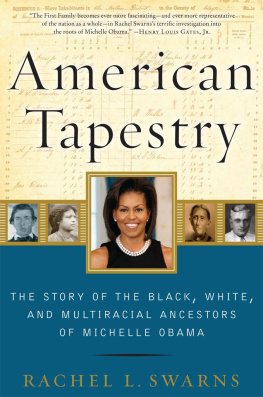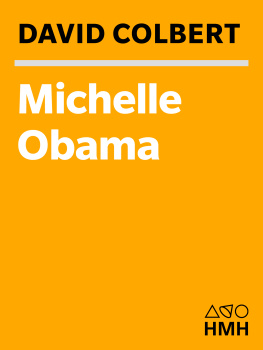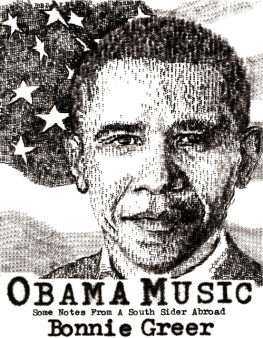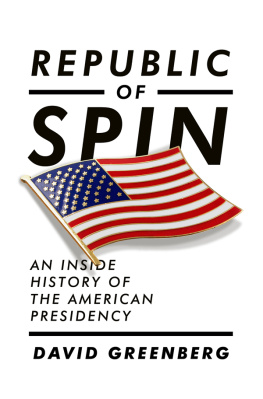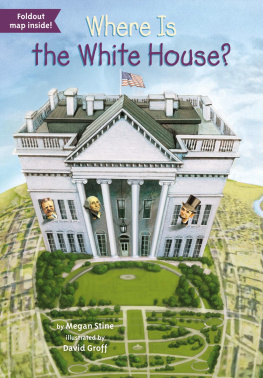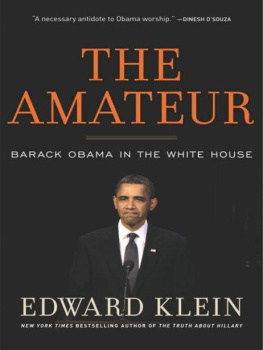

Copyright 2014 by Mark Will-Weber
All rights reserved. No part of this publication may be reproduced or transmitted in any form or by any means electronic or mechanical, including photocopy, recording, or any information storage and retrieval system now known or to be invented, without permission in writing from the publisher, except by a reviewer who wishes to quote brief passages in connection with a review written for inclusion in a magazine, newspaper, website, or broadcast.
First ebook edition 2014
eISBN 978-1-62157-243-5
Library of Congress Cataloging-in-Publication Data
Will-Weber, Mark.
Mint juleps with Teddy Roosevelt : the complete history of presidential drinking / Mark Will-Weber.
pages cm
Includes bibliographical references and index.
1. Presidents--Alcohol use--United States--History. 2. Presidents--United States--Biography. 3. Drinking of alcoholic beverages--United States--History. 4. Drinking behavior--United States--History. I. Title.
E176.1.W675 2014
973.099--dc23
2014006103
Published in the United States by
Regnery History
An imprint of Regnery Publishing
A Salem Communications Company
300 New Jersey Avenue NW
Washington, DC 20001
www.RegneryHistory.com
10 9 8 7 6 5 4 3 2 1
Books are available in quantity for promotional or premium use. For information on discounts and terms, please visit our website: www.Regnery.com.
Distributed to the trade by
Perseus Distribution
250 West 57th Street
New York, NY 10107
To my late grandfather, Colonel Charles I. FaddisU.S. Congressman from Pennsylvania, recipient of the Purple Heart in both World War I and World War IIwho once said to my mother: Gertrude, you would be shocked if you really knew what went on in Washington.
Mark Will-Weber, August 27, 2014
Contents
N ot guilty!
It was Saturday morning, May 16, 1868. The pivotal vote of Kansas senator Edmund Gibson Ross meant that beleaguered President Andrew Johnsondespite an earlier vote for impeachment by the House of Representativeshad escaped charges of high crimes and misdemeanors.
In the chaotic aftermath (the Senate chamberboth floor and gallerieswere packed with spectators), presidential bodyguard William H. Crook raced to the Executive Mansion (the term White House was not formally established until Teddy Roosevelts first year in office, 1901) to inform the president. As Crook stirringly recounted in his memoirs, he covered the distanceslightly more than a milewith adrenaline-fueled strides:
I ran all the way from the Capitol to the White House. I was young and strong in those days, and I made good time. When I burst into the library where the President sat with Secretary Welles and two other men whom I cannot remember, they were quietly talking. Mr. Johnson was seated at a little table on which luncheon had been spread in the rounding southern end of the room. There were no signs of excitement.
Mr. President, I shouted, too crazy with delight to restrain myself, you are acquitted!
All rose. I made my way to the President and got hold of his hand. The other men surrounded him, and began to shake his hand. The President responded to their congratulations calmly enough for a moment, and then I saw that tears were rolling down his face. I stared at him; and yet I felt I ought to turn my eyes away.
It was all over in a moment, and Mr. Johnson was ordering some whiskey from the cellar. When it came, he himself poured it into glasses for us, and we all stood up and drank a silent toast. There were some sandwiches on the table; we ate some and then we felt better. In a few minutes came a message of congratulations from Secretary Seward to my dear friend. By that time the room was full of people, and I slipped away.
I found Crooks remembrance in the early stages of researching this book. Yes, it obviously had the prerequisite connection to alcohol (whiskey in this case, the drink of choice in the Johnson Executive Mansion), but there was also a human factor: Johnson, tears of relief streaming down his face; the fetching of whiskey from the Executive Mansion cellar; the president himself performing the honors, tilting the bottle of amber-colored spirits that gurgled into the glasses of his loyalists; and, finally, those glasses raised in a solemn yet celebratory toast. Andrew Johnsonthe former small-town tailor from Tennesseehad dodged a political bullet, and they all knew it.
Presidents, as it turns out, drink for many of the same reasons most people drink. They drink in celebration or to be sociable; they drink to confirm solidarity. They drink because they are under pressure or because they might feel lonely, depressed, or trapped. (Harry Truman often referred to the White House as The Great White Jail.) They drink because their job seems to demand it (knocking back vodka shots with a boisterous Boris Yeltsin or hovering above a snifter of brandy with a cigar-smoking Prime Minister Churchill) or because presenting a lavish state dinner at the White House calls for complementing rounds of wine.
Even presidents who drank lightly or not at all were nevertheless greatly affected by the alcohol consumed by those around them, whether staffers (like Lincolns inept Ford Theatre bodyguard) or relatives (like Billy Carter, Jimmy Carters younger brother, often trotted out as the presidential poster boy when it comes to alcohol-inspired embarrassments).
This book aims to present an entertaining and accurate portrait of presidents imbibing: from George Washington, who distilled whiskey at Mount Vernon, to President Barack Obama, who requested that his White House kitchen staff conjure up some quite servable homebrew (a key ingredient being honey from Michelle Obamas White House beehives), henceforth known as White House Honey Ale.

Alcohol came with the colonists. In the first Christmas at Plymouth in 1620, the Pilgrims, suffering through a sore storm of winde and rayne, could not disembark from the Mayflower but found some solace in good old English beer, as William Bradford recorded in his diary:
Munday the 25. being Christmas day, we began to drink water aboord, but at night the Master caused us to have some Beere, and so on boord we had diverse times now and then some Beere....
In Jamestown, Virginiathe first permanent English settlement in North Americabeer brewing (although sometimes of dubious quality) was soon established, and the colonists also drank rum and hard cider. In the eighteenth century, drinking distilled beverages could be safer than drinking water (though the link between contaminated water and, say, cholera, was not yet established), and alcohol was one of the few standard medicinal treatments against colds, flus, fevers, and other ailments.
Alcoholat least in moderate amountscontinued to have medicinal currency well into the nineteenth and twentieth centuries. Former New York City mayor Phillip Honean educated and wealthy manlamented the death of a friend in 1839, noting:
Next page

